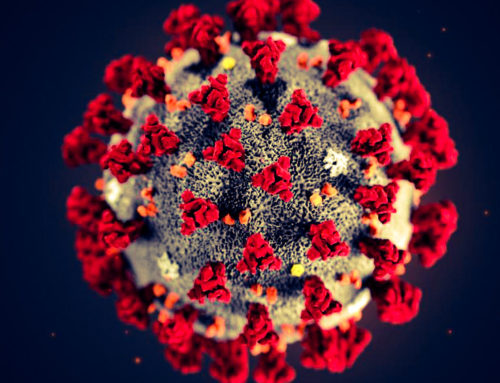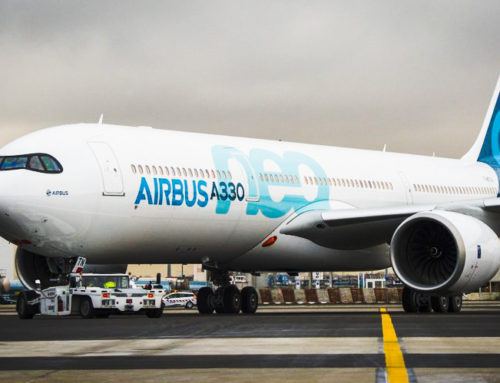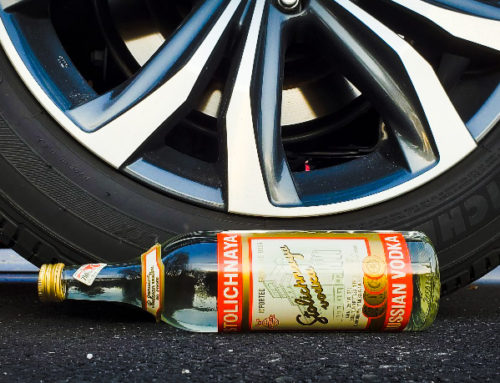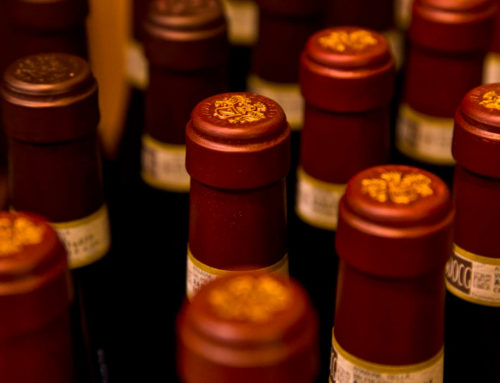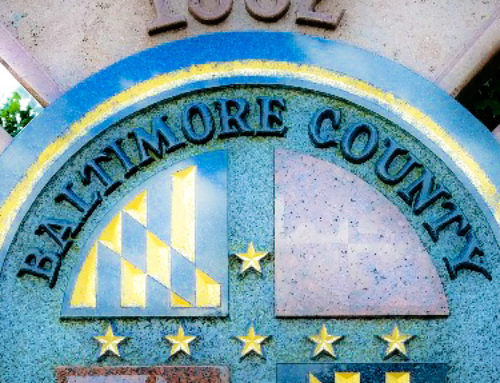View by Topic
Recent Articles
-
Mold Testing in Maryland Real Estate under the New LawSaturday, June 14th, 2025
-
Energy Star: A Quiet Exit and a Bright Future Beyond GovernmentSaturday, June 7th, 2025
-
Congress Blocks California’s Gasoline Car BanSaturday, May 31st, 2025
-
EPA Will Keep Current Limits for “Forever Chemicals” in Drinking WaterSaturday, May 24th, 2025
-
Court Indefinitely Pauses SEC Climate Rule LitigationSaturday, May 17th, 2025
View by Month/Year
“Green Building Law Update” Headlines
Recent Articles & News from
Stuart Kaplow’s blog
at GreenBuildingLawUpdate.com
- Congress Blocks California’s Gasoline Car Ban: A Legal and Policy Analysis June 1, 2025
- EPA Will Keep Current Limits for “Forever Chemicals” in Drinking Water May 25, 2025
- Court Indefinitely Pauses SEC Climate Rule Litigation May 18, 2025
- Maryland is About to Regulate Mold: But is the Cart Before the Horse? May 11, 2025
Subscribe to the Green Building Law Update!
Stuart Kaplow brings his expertise and extensive experience to the table with his unique digital publication, "Green Building Law Update". Subscribers receive regular updates to keep them informed about important issues surrounding Environmental Law, Green Building & Real Estate Law, as well as the emerging demand for Environmental Social Governance (ESG).
Get fresh content through the lense of Stuart Kaplow's cutting-edge expertise, innovative commentary and insider perspective. Don't miss another issue! Subscribe below.
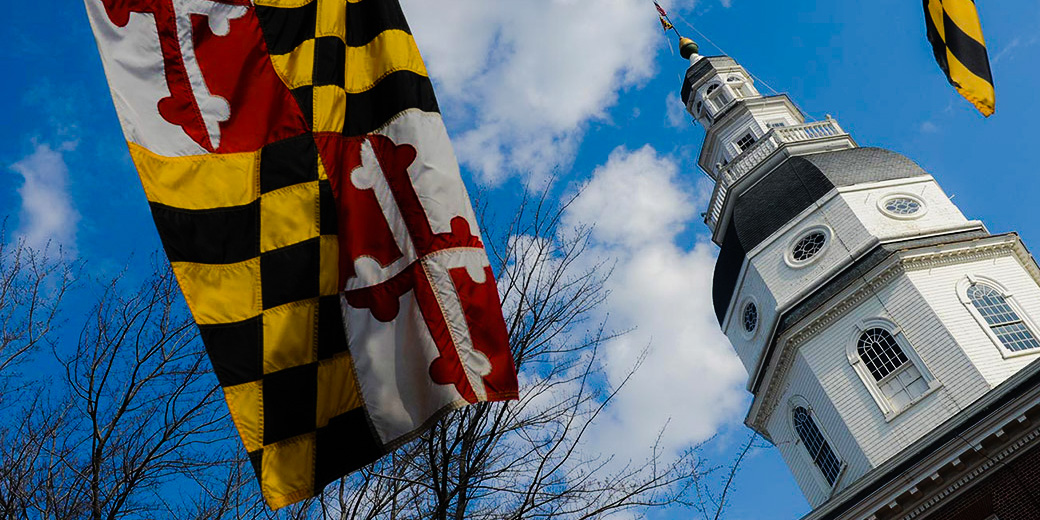
Maryland Enacts New Alcoholic Beverage Laws in 2020
Almost 86 years to the day after the repeal of Prohibition, the Maryland General Assembly commenced on January 8, 2020.
That 440th legislative session in Maryland was, for the first time since the Civil War, cut short, ending three weeks early.
Despite the abridged, less than 90 day full session, the legislature acted on 1,664 House bills and 12 resolutions and 1,081 Senate bills and 6 resolutions with 667 bills passing both chambers before they adjourned sine die on March 18, 2020. The Governor has until the 30th day after presentment to sign or veto bills.
This post is a review of key alcoholic beverage legislation enacted this session and awaiting the Governor’s signature.
We would be remiss if we did not mention that this is being written while Maryland is still in a state of emergency as described in our prior post, COVID-19 Orders Authorize Carry Out and Delivery of Alcoholic Beverages in Maryland.
In terms of context, on December 5, 1933 Utah became the 36th state to ratify the 21st Amendment, thereby repealing the 18th Amendment and ending over 13 years as a dry nation. Resistance to Prohibition across Maryland had been strong. But the vestiges of Prohibition continue in Maryland with the laws that today govern alcoholic beverages, including a hodgepodge of county by county regulation and a “three tier” distribution system that is all but unchanged since 1933. This year of a short legislative session no doubt saved Marylanders from some additional regulation, but the new laws compiled below, while adding to the alcoholic beverage regulatory scheme, merely tweak production, distribution and sales. Savvy players in the alcoholic beverage industrial complex will find business opportunities to lead and profit in matters of beer, wine and spirits, including opportunities advantaged by these newly enacted laws.
Statewide
HB 900 / SB 911 delays the effective date of last year’s legislation, which establishes the Alcohol and Tobacco Commission (ATC), from June 1, 2020, to January 1, 2021, and extends the expiration dates of the initial terms of the members of ATC. The bill grants authorized employees of the Field Enforcement Division of the Comptroller’s Office transferred to ATC the powers of police and peace officers and classifies them as police officers and law enforcement officers, as specified. The bill also requires ATC and the Comptroller’s Office to cooperate in their respective duties related to alcohol and tobacco regulation, as specified, and clarifies the responsibilities of ATC and the Comptroller’s Office under last year’s legislation.
HB 902 / SB 765 repeals various requirements that an alcoholic beverages license applicant or license holder be a registered voter, taxpayer, and/or resident of a jurisdiction for a period of time (generally one or more years) as a condition for obtaining or maintaining a license and instead, generally requires the applicant or licensee to be a resident, voter, and/or taxpayer of the State or a local jurisdiction at the time of application and during the license period. The bill applies to various State and locally issued alcoholic beverages licenses and permits.
SB 118 a departmental bill, establishes statutory definitions for “alcohol production” and “agricultural alcohol production” in the Land Use Article. Either or both definitions may be (but are not required to be) adopted by a local jurisdiction by local ordinance, resolution, law, or rule.
City of Annapolis
HB 844 / SB 503 establishes a club public event permit in the City of Annapolis. The City of Annapolis Board of License Commissioners may issue the permit to the holder of a Class C alcoholic beverages license. The permit authorizes a club to sell alcoholic beverages that are allowed under the club’s Class C license during a public event, at the place described in the license, to an individual who is not a member of the club or a guest of the member for on-premises consumption. The permit holder must submit an application for approval to the board at least 45 days before a public event and obtain approval from the board before each public event. The board may approve up to 12 public events per permit holder in a calendar year.
Anne Arundel County
HB 138 / SB 052 clarifies that the Anne Arundel County Board of License Commissioners may consider, when issuing Class A, Class B, or Class D off-sale alcoholic beverages licenses, whether an establishment is located in an assessment district in which the ratio of Class A, Class B, or Class D off-sale licenses per individual is more or less than one license per 4,000 individuals. An assessment district is a tax assessment district established by the county through local law.
HB 285 requires the Anne Arundel County Board of License Commissioners to publish a meeting agenda no later than one week before the hearing; make each open meeting available to the public with live video and audio streaming; and publish the minutes of each open meeting, as specified, no later than one month after the meeting.
HB 329 authorizes the Anne Arundel County Board of License Commissioners to post a completed alcoholic beverages license application online at least 10 days prior to the hearing date, instead of posting this notification in a newspaper, as currently required. The board must require an applicant to post a suitable notice in a conspicuous place at the location described in the application for at least 10 days.
HB 330 / SB 057 an emergency bill repeals the petition of support requirement in Anne Arundel County for alcoholic beverages license applications.
HB 461 / SB 141 raises the salaries of the chief inspector, deputy chief inspector, and general inspectors employed by the Anne Arundel County Board of License Commissioners.
HB 554 / SB 239 establishes a Class C (small yacht club) license in Anne Arundel County and authorizes the Anne Arundel County Board of License Commissioners to issue the license to a small yacht club that meets specified requirements. A license holder may sell beer, wine, and liquor to yacht club members and guests accompanied by members on the yacht club premises. The license holder may purchase alcoholic beverages from a retail dealer.
HB 638 / SB 143 alters the requirements for the approval of alcoholic beverages license transfers in Anne Arundel County. The bill specifies that the Anne Arundel County Board of License Commissioners is not bound by a specific statutory limitation if a creditor’s claim involves indebtedness incurred through the purchase or sale of alcoholic beverages in connection with the licensed premises. Additionally, the bill authorizes the board, if the board determines that a properly filed claim is outside its expertise, to approve an application for the transfer of a license or an application for a new license if there is an amicable resolution of the claim or a judicial determination on the claim.
HB 714 / SB 525 establishes a gift basket permit in Anne Arundel County. The bill authorizes the Anne Arundel County Board of License Commissioners to issue the permit to a person: whose primary business is the sale and delivery of flowers; whose business includes the sale and delivery of gift baskets of flowers, food, or other items; and does not hold another alcoholic beverages license or permit. The board is prohibited from issuing a permit for use in conjunction with or on the premises of a chain store, supermarket, or discount house. A permit holder may sell and deliver, to consumers of a legal drinking age located in the county, gift baskets containing specified volumes of beer, wine, or liquor products, purchased from a retail license holder. The permit holder must maintain records and submit reports required by the board. The annual permit fee is $100.
HB 758 / SB 221 requires the Anne Arundel County Board of License Commissioners to employ one full-time executive director and one full-time administrator and specifies the pay grades for these positions. In addition, the bill increases, from one to two, the number of full-time secretaries the board must employ.
SB 037 / HB 430 requires, in Anne Arundel County, that prior to a license renewal, holders of Class B beer and light wine; Class H beer and light wine; Class B beer, wine, and liquor; or Class H beer, wine, and liquor licenses must attest in a sworn statement that the gross receipts from food sales for the 12-month period immediately preceding the application for renewal were at least 51% of the gross receipts from the sale of food and alcoholic beverages, as specified.
SB 126 / HB 558 an emergency bill alters the manner in which the holder of an entertainment facility license in Anne Arundel County may sell beer, wine, and liquor to include the sale by the glass or by the bottle. The bill expands the scope of authorized acts that may be performed in the licensed entertainment facility, as specified. The bill authorizes the Anne Arundel County Board of License Commissioners to allow the holder of an entertainment facility license to sell alcoholic beverages for promotional events in an area adjacent to the entertainment facility if that area is both under controlled access of the license holder and is a parking lot, picnic ground, building, or terrace controlled by the license holder. The bill also authorizes the board to revoke an entertainment facility license for displays of nudity and sexual acts at the entertainment facility, as specified.
SB 194 / HB 536 an emergency bill authorizes the Anne Arundel County Board of License Commissioners to allow a license holder to transfer an alcoholic beverages license to another premises in the same tax assessment district in accordance with all applicable laws and regulations on transfers of licenses if the premises for which the license was issued is (1) substantially destroyed by fire, explosion, or catastrophe; (2) taken by condemnation; or (3) taken by the exercise of the power of eminent domain.
Baltimore City
HB 168 clarifies that the hours of sale for a Class B-D-7 license located in the area bounded by Liberty Heights Avenue, Northern Parkway, Druid Park Drive, and Wabash Avenue are from 9 a.m. to 9 p.m.
HB 228 / SB 073 authorizes the Baltimore City Board of License Commissioners to issue a Class B-D-7 license in the 5400 block of Harford Road in the 45th alcoholic beverages district if average daily receipts from the sale of food are at least 65% of the applicant’s total daily receipts; the applicant executes a memorandum of understanding with a community association; the applicant does not create a separate package goods department; alcoholic beverages are served to patrons seated at tables; and alcoholic beverages are served only with meals to patrons provided with outdoor table service.
HB 924 prohibits the Baltimore City Board of License Commissioners from charging a fee for a temporary license permit extension if the applicant is a nonprofit 501(c)(3) organization that is an officially recognized and active main street organization established by the city and the event is a single event where attendance is limited to no more than 750 individuals. In addition, the bill authorizes the board to waive distance restrictions for license transfer applicants under specified circumstances in the area bounded by Fagley Street, Gough Street, Grundy Street, and Chestle Place and alters the geographic area within which the board may issue a Class B-D-7 license in the Old Goucher Revitalization District.
HB 954 / SB 328 authorizes, in Baltimore City, the exchange of a Class B beer, wine, and liquor (BWL) license for a Class B-D-7 license if the licensed premises is in an area bounded by the unit block of West Preston Street, the 1200 block of North Charles Street, the 1200 block of Morton Street, and the unit block of West Biddle Street and the applicant executes a memorandum of understanding (MOU) with the Mount Vernon-Belvedere Improvement Association. The holder of an exchanged license may provide outdoor table service. In addition, the board may condition the issuance or renewal of the license on the substantial compliance of the applicant with the MOU.
SB 069 / HB 1293 extends the date after which the Baltimore City Board of License Commissioners may no longer issue a Class A-7 license from July 1, 2020, to June 30, 2022, and makes a conforming change; prohibits a Class A-7 license from being issued in the 43rd legislative district; alters the hours of sale for a Class A-7 license to be from 10 a.m. to midnight; and requires the holder of Class A beer, wine, and liquor (BWL) license, a Class A-2 BWL license, or Class A-7 BWL license to operate a digital surveillance system on the licensed premises. In consultation with the Baltimore Police Department, the board must adopt regulations relating to digital surveillance on or before December 31, 2020.
Carroll County
HB 571 / SB 238 alters the hours of sale for specified alcoholic beverages licenses in Carroll County.
Dorchester County
HB 024 / SB 100 clarifies that the Dorchester County Board of License Commissioners, not the Dorchester County Council, is authorized to issue a Class C beer, wine, and liquor (BWL) license. The bill also authorizes the board to issue a Class C BWL license to a nonprofit operating at a specified address known as Governors Hall at Sailwinds Park.
Frederick County
HB 145 repeals the quota on the number of Class B (on-sale) beer and Class B (on-sale) beer and wine licenses the Frederick County Board of License Commissioners may issue in an election district.
HB 146 allows alcoholic beverages to be consumed anywhere on the licensed premises at the Weinberg Center for the Arts in Frederick County as specified.
HB 322 authorizes a Class CT (cinema/theater) (on-sale) beer, wine, and liquor licensee in Frederick County to sell beer, wine, and liquor for on-premises consumption in a lobby, screening room, or performance hall of a for-profit cinema or theater with at least one screening room or performance hall. The bill repeals the requirement that sales of beer, wine, and liquor by a Class CT licensee must be in a designated area of the lobby, for 45 minutes before a movie or theater performance starts.
HB 1062 establishes a Class M-G beer, wine, and liquor license in Frederick County and authorizes the Frederick County Board of License Commissioners to issue the license for use at a municipal golf course operated by a municipal golf course manager or a golf course manager under a management agreement with the City of Frederick. The board may issue the license to a manger of a municipal golf course. The license authorizes the licensee to sell beer, wine, and liquor for on-premises consumption on the land and in the facilities used for golfing purposes on Monday through Saturday from 6 a.m. to 10 p.m. and on Sunday from 10 a.m. to 10 p.m.
Garrett County
SB 643 / HB 786 authorizes a holder of a manufacturer’s license in Garrett County to sell and deliver alcoholic beverages to a licensed retail establishment on an election day; authorizes the Garrett County Board of License Commissioners to issue a Class BDR (deluxe restaurant) license to the holder of any Class B license issued by the board or to a holder of a specified license issued by a local licensing board of a different jurisdiction; alters minimum seating requirements for a Class BDR (deluxe restaurant) beer, wine, and liquor (BWL) license; and authorizes the board to issue a refillable container permit for wine.
Harford County
HB 864 / SB 375 creates a hotel lobby license in Harford County that authorizes the sale of beer, wine, and liquor from a store in the hotel lobby to patrons of the hotel for on-premises consumption.
HB 923 / SB 385 prohibits the Harford County Board of License Commissioners from issuing more than five Class MT (movie theater) beer, wine, and liquor licenses to the same person. The bill also increases, from $500 to $1,000, the annual license fee for Class MT licenses.
HB 963 / SB 496 requires alcoholic beverages license holders with on-sale privileges in Harford County to keep specified records at the location designated in the license or another location in the county, and on at least five days’ notice, make the records available for inspection by the Harford County Board of License Commissioners or a designee of the board. The bill also alters the penalty provision relating to violations committed by license holders with on-sale privileges such that if charges at a hearing are sustained, the board must impose a fine between $250 and $2,000 and may suspend or revoke the license holder’s license immediately.
HB 971 / SB 376 creates a class GCR (Golf Course Restaurant) beer, wine, and liquor license in Harford County. The Harford County Board of License Commissioners may issue a Class GCR license to the owner or operator of a golf course that is open to the public; is operated for profit; has a minimum of 18 holes; and has a kitchen facility that has been approved by the appropriate local governmental unit.
HB 972 / SB 379 alters, in Harford County, specified membership qualifications for a social organization that may be issued a certain 6-day or 7-day Class C-3 beer, wine, and liquor license by the Harford County Board of License Commissioners. The membership requirement now pertains to active or retired first responders rather than policemen.
HB 1318 / SB 377 exempts breweries and distilleries in a municipality from the distance restriction prohibiting the issuance of an alcoholic beverages license near a place of worship in Harford County. The bill authorizes the Harford County Board of License Commissioners, after a public hearing, to waive the distance restriction and issue a license on a case-by-case basis.
Kent County
HB 777 / SB 792 alters the hours of sale for Class B wine shop and lounge licenses in Kent County. The bill authorizes the Kent County Board of License Commissioners to issue a refillable container permit for draft beer to specified alcoholic beverages license holders. The bill also establishes a Class C multiple event beer, wine, and liquor (BWL) license in the county for events held by a volunteer fire company.
Montgomery County
HB 297 expands the types of licenses to which the Montgomery County Board of License Commissioners may issue a catering extension to include the holder of a Class D beer, wine, and liquor (BWL) license.
HB 298 alters the hours of consumption for specified alcoholic beverages licenses in Montgomery County. Unless otherwise provided, an individual may consume alcoholic beverages in a premises licensed in the county only during the hours of sale permitted under the license of the premises. The bill clarifies a license holder must remove all containers of alcoholic beverages from the tables and bar service area in the licensed premises at the end of the license holder’s permitted hours of sale. The bill repeals a specified permit the Montgomery County Board of License Commissioners may issue and also makes conforming changes by repealing obsolete provisions relating to the hours of sale of alcoholic beverages.
HB 377 establishes a consumption only marketplace license in Montgomery County. The Montgomery County Board of License Commissioners is authorized to issue the license to the developer of a commercial shopping center if the shopping center meets specified criteria. The license authorizes the holder to allow the consumption of beer, wine, and liquor in a designated outdoor area located within the commercial shopping center if the beer, wine, or liquor is purchased at an establishment, as specified. The license holder may allow the consumption of beer, wine, and liquor in a designated outdoor area Monday through Sunday, from 11:00 a.m. to 11:00 p.m.
HB 860 makes numerous changes to the manner in which alcoholic beverages licenses are regulated in the Town of Kensington in Montgomery County. Among other changes, the bill extends the authorized hours of operation of specified licenses, alters requirements for applicants of specified licenses, and increases the number of licenses authorized in the Town of Kensington.
Prince George’s County
HB 288 requires an alcoholic beverages license holder in Prince George’s County or an individual designated by the license holder who is employed in a supervisory capacity to be certified by an approved alcohol awareness program and be present on the licensed premises at all times when alcoholic beverages may be sold. The bill specifies that a license holder who violates the bill’s requirements is subject to a $250 fine for a first offense and a $500 fine for a second offense. For each subsequent offense, the license holder is subject to a fine up to $1,000, or a suspension or revocation of the license, or both.
HB 845 authorizes the Prince George’s Board of License Commissioners to issue up to 10 Class B-DD (Development District) licenses to restaurants located within the Carillon Development, located near the Arena Drive exit of the Capital Beltway.
Queen Anne’s County
HB 653 defines “financial interest” as it applies to applications for alcoholic beverages licenses in Queen Anne’s County as an applicant who is the owner of a controlling interest in a place of business for which a license has been applied for or issued. “Controlling interest” is the ownership or control of sufficient shares or interest in a business to allow for an exercise of control over that business.
HB 467 repeals the requirement that applicants for an alcoholic beverages license in Queen Anne’s County include a “petition of support” as a part of the application.
HB 1398 prohibits the Queen Anne’s County Board of License Commissioners from issuing a Class A beer, wine, and liquor (BWL) license to an individual on behalf of a corporation or limited liability company, unless the corporation or limited liability company is a Maryland entity in good standing or a foreign entity registered to do business in the State. The bill repeals the requirement that applicants for an alcoholic beverages license for a corporation or limited liability company must be a resident of the State. Specified license application requirements do not apply to any alcoholic beverages license issued within the municipal limits of any incorporated town in Queen Anne’s County.
Washington County
HB 789 an emergency bill reauthorizes the Washington County Board of License Commissioners to issue a special event permit to a holder of a Class 3 winery license or a Class 4 limited winery license. The permit authorizes the holder to sell beer, wine produced by the holder, sparkling wine that is naturally or artificially carbonated, and liquor for on-premises consumption at an event for which the entire licensed premises has been rented. The license holder must purchase the beer, sparkling wine, or liquor intended for sale under the permit from a licensed retailer. A license holder must keep all receipts of purchase of alcoholic beverages for one year after the date of purchase. A license holder that intends to use the permit must notify the board at least one week before the event is to occur and may use the permit up to 32 times in a year.
Wicomico County
HB 1319 increases, from three to five, the number of members that the Governor must appoint to the Wicomico County Board of License Commissioners and requires each member of the board to be nominated by the Wicomico County Executive. In addition, three members of the board must be residents of the City of Salisbury, nominated jointly by the county executive and the Mayor of Salisbury. The bill requires that the terms of the members be staggered as required by the terms provided for the members of the board on July 1, 2020.
The Maryland General Assembly may convene in special session in late May?
Thank you to the Maryland Department of Legislative Services for the information provided above.
Nancy Hudes and I are collaborating in Regulatory Solutions Consultancy, LLC, a consulting firm positively leveraging constraints and finding advantages in the licensed beverage industry. If we can assist you with the significant legal and business challenges of alcoholic beverage law, we are ready to help you.





